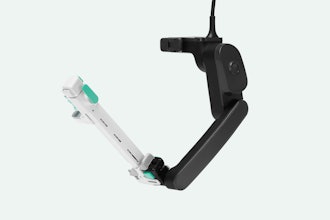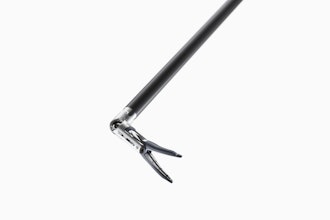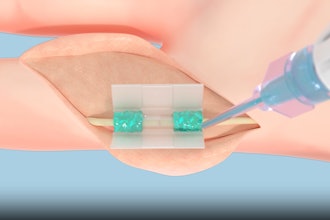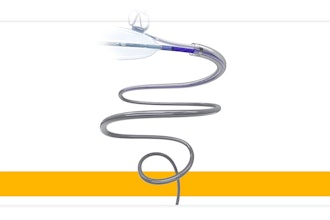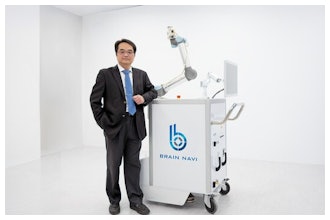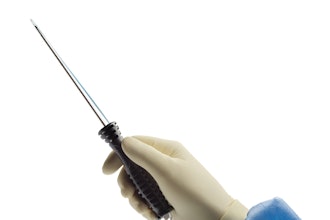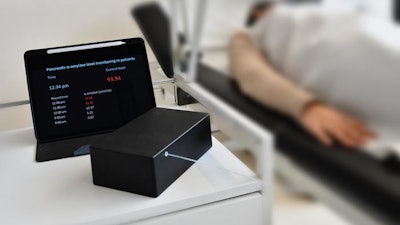
Complications after pancreatic surgery are common and can be life-threatening. One of the most serious yet common complications is postoperative pancreatic fistula. This condition is diagnosed based on increased concentrations of the pancreatic enzyme alpha-amylase in drainage secretions. Currently, the analysis of these enzymes is routinely conducted on the first and third postoperative day. Scientists at the Helmholtz-Zentrum Dresden-Rossendorf (HZDR) and the University Hospital Dresden (UKD) now report in the journal Biosensors and Bioelectronics (DOI: 10.1016/j.bios.2024.116034) on the development of a portable device that can carry out the enzyme determination continuously and in real time.
Up to thirty percent of patients undergoing partial resection of the pancreas suffer from postoperative pancreatic fistula, a complication resulting from leakage of pancreatic enzymes into the abdominal cavity. This condition can considerably prolong hospitalization and lead to a delay or non-administration of postoperative chemotherapy, which is an important component of pancreatic cancer treatment. Postoperative pancreatic fistula is diagnosed by examining the digestive enzyme alpha-amylase in drainage secretions by measuring its biochemical reaction with starch, a storage carbohydrate. The enzyme alpha amylase breaks down starch carbohydrate into its components. High alpha-amylase levels in the drain indicate postoperative pancreatic fistula. In current clinical practice, this test is carried out on the first and third day after surgery. It can take up to six hours until test results become available to caregivers. In addition, the current standard process only provides information on the patient’s condition at a specific point in time.
Development of a millifluidic device
As continuous monitoring of alpha-amylase is not yet feasible, the adjustment of medical treatment in the event of complications can be delayed. For this reason, Dr. Larysa Baraban at the HZDR’s Institute of Radiopharmaceutical Cancer Research, together with her team and colleagues from the Department of Visceral, Thoracic and Vascular Surgery at the University Hospital Dresden, have developed a portable, droplet-based millifluidic device that can measure the drainage fluid’s alpha-amylase activity in real time. This instrument is intended to monitor patients in the critical first days after surgery. Millifluidics means that fluids are passed through tubes of approximately one millimeter in diameter. A miniscule amount of drainage fluid is continuously collected from patient drainage samples and encapsulated into nanoliter-sized droplets with a starch reagent. The use of this microfluidic droplet format reduces the time between sampling and reading to one to two minutes.
To determine the strength of the reaction, Baraban and her team work with a fluorescent dye. The fluorescence increases with increasing concentrations of alpha-amylase. The more intense the dye, the higher the concentration of the alpha-amylase in the drainage secretion, which indicates the presence of postoperative pancreatic fistula. In clinical practice, such a finding could trigger follow-up examinations at an early stage, aiming to avoid deterioration of the complication in patients.
Validation of the new device
To validate their newly developed technology, the researchers compared the alpha-amylase levels measured using the conventional method with those from the new device in 32 patients following pancreatic surgery. The values corresponded in 31 of the 32 patients, confirming the reliability of the new millifluidic instrument.
The advantages of the new device are clear: “Our method shortens the alpha-amylase determination period from six hours to approximately two minutes and enables real-time monitoring of the amylase activity. Furthermore, our droplet-based millifluidic device can be conveniently positioned at the patient’s bedside,” adds Baraban. “This allows complications to be identified more rapidly and appropriate treatments to be initiated.”
The new monitoring technology can be expanded to analyze various bodily fluids and diseases as well as a wider range of biomarker. Therefore, the researchers believe that the new methodology could become part of the future standard of care in post-operative patient monitoring. HZDR, UKD and the Faculty of Medicine at TU Dresden are supporting this joint project with an internal fund.









